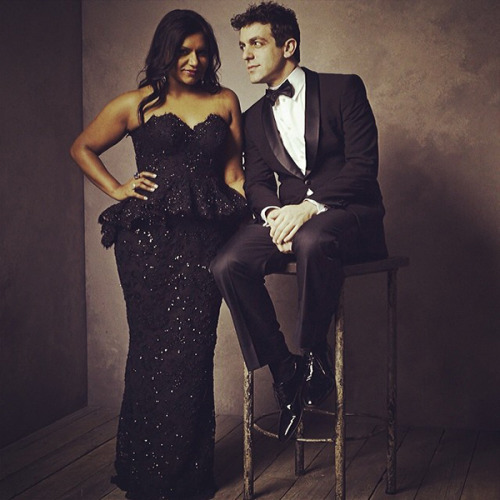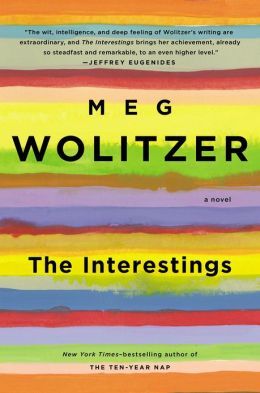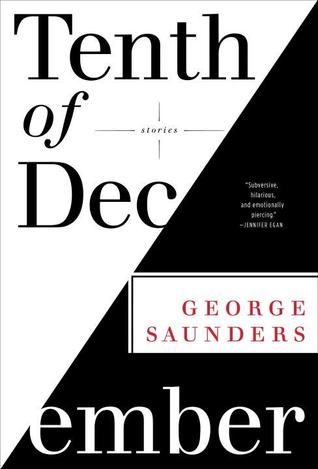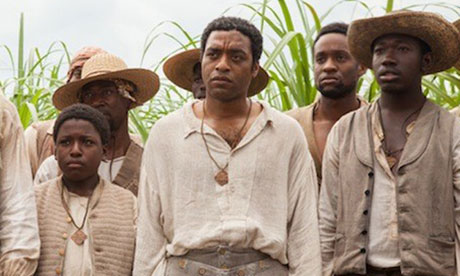It took me three whole weeks but I did it. Here is my best of the year list: 2014 Edition.

The Unspeakable by Meghan Daum
Sometimes our feelings — and our reactions to the things that happen to us — can go to a messy place. Emotions are the messy and unpredictable part of being human, after all. Well, it's in those murky corners of the heart where Meghan Daum's sharp collection of essays lives. This book, as she writes in her introduction, ''is about the ways that some of life's most burning issues are considered inappropriate for public or even private discussion. It's about the unspeakable thoughts many of us harbor — that we might not love our parents enough, that life's pleasures sometimes feel more like chores — but can only talk about in coded terms if at all. It's about the unspeakable acts that teach no easy lesson and therefore are elbowed out of sight.''
How’s that for blatant honesty?
Not that there are not lighter moments. Daum writes about dating inappropriate men, what it was like meeting her lifelong hero, Joni Mitchell, and the period in her life when everyone assumed she was a lesbian. If you've been missing Nora Ephron — and who hasn't? — Daum's tale about playing charades at Ephron's house is so well observed and funny it could have been written by the great lady herself.
Daum, a columnist for the Los Angeles Times, tackles personal topics, both large and small, with a staunch gaze that many may find largely unflattering, not to mention depressing or even alarming. But the best part, is that the title is the spoiler alert. So, if you don’t wanna watch someone “go there” than this really isn’t the book for you.
All Joy and No Fun by Jennifer Senior

This is the definitive book on parenting. To hell with Dr. Spock. Up yours! with the Attachment Parenting Mumbo Jumbo. This is the mic drop of What-It’s-Like-To-Be-A-Parent-Nowadays. Period. If Jennifer Senior had been smart she would have called the book, The Very Purest Form of Birth Control Ever Devised. Mic Drop.
Jennifer Senior analyzes the many ways children reshape their parents' lives, whether it's their marriages, their jobs, their habits, their hobbies, their friendships, or their internal senses of self. She argues that changes in the last half century have radically altered the roles of today's mothers and fathers, making their mandates at once more complex and far less clear. And yet here is the paradox: while Senior set out to explore how children affect their parents and why decades of social science show that parents aren’t any happier -and in some cases are less happy - than people without kids, she still manages to qualify that there is real joy in the process. That she manages to reveal through sound writing and research that parenting, and the joy we may find in it, is sometimes fleeting and difficult to measure is what makes the book a revelation. “Meaning and joy have a way of slipping through the sieve of social science,” she writes. “The vocabulary for aggravation is large. The vocabulary for transcendence is more elusive.”
Well, this lady got pretty darn close. Exceptional.
Wonder by R. J. Polaccio
There is so, so much I can tell you about how incredible this book is but I will leave to two Young Adult Lit experts. The first is YA Fiction god, Rick Riordin, and was posted on the Good Reads website:
Ye gods, what a wonderful book! I don't read a lot of realistic middle grade fiction. I tend to gravitate toward fantasy. But this is probably the best such book I've read since Sherman Alexie's The Absolutely True Diary of a Part-Time Indian.
The main character August (Auggie) Pullman is a ten-year-old boy with severe facial abnormalities. Little kids scream when they see him. Older kids make fun of him and call him a freak. Auggie is home-schooled through grade four, but for middle school his parents decide to send him to a private school, Beecher Prep, in New York City. Wonder is the story of his fifth grade year, told partly from Auggie's perspective, and partly from the other kids in his life -- his sister Via, her oldest friend Miranda, Via's boyfriend Justin, and Jack and Summer, Auggie's new friends at Beecher Prep. Each narrator has a distinct, completely believable voice. Palacio writes with just the right balance of humor and pathos, making each character both flawed and sympathetic. She "gets" kids -- how they think, how they talk, how they have the capacity to be both horribly mean and incredibly brave and kind. I recognize these characters from my years of teaching middle school, and I'm sure young readers will recognize them too. The book rings with authenticity. The short chapters and shifting narrative make this a quick, easy read. It's a feel-good book with a great message, and the ending is a tearjerker in the best possible way. I'd recommend it without hesitation to most middle grade readers, girls or boys, even those who may not normally pick up realistic fiction.
Now the second expert: my daughter, Xenia:
I don’t want this book to end. Ever.
One More Thing by B.J. Novak

I read alot of books this year by funny people who write for TV- Mindy Kalling, Lena Dunham, Amy Pohler - but this book, by B.J. Novak (who many may remember best as Ryan from The Office) was by far the best. But before you dismiss it as yet another actor trespassing into the world of short fiction (or Franco-ing, as I call it), just read his story, “Kellogg’s (Or, The Last Wholesome Fantasy of the Middle-School Boy)” and you’ll know instantly that this is a guy who is exactly where he should be creatively. Then read the story about the woman sets out to seduce motivational speaker Tony Robbins. Then the story about the school principal who unveils the plan to permanently abolish arithmetic. Then, the one about the ambulance driver who follows his heart and throw it all away to be a singer-songwriter.
Ugh. Just read it already!
All my Puny Sorrows by Miriam Toews
Let me tell you three funny story’s about this book.
Story #1
I see All my Puny Sorrows at my favorite bookstore (which will remain nameless) and squeal with delight. I love Miriam Toews!! I head home and cancel every exciting thing I have planned for my life for the next two days (read: nothing) and dedicate myself to reading it. I’m in my happy place, y’all! It isn’t until a third of the way through this beautiful beast of a book that that I realize that I will probably be depressed for the rest of the season. I am reading a book about a woman, Yoli, who’s sister, Elfreida, just wants to die and who pursues that tasks at all costs. And I am laughing. And crying. And laughing some more. And she is talking about life and art and books and family why they all mean so much. And why do they mean so much, I think to myself as I close the pages on this book and sink into a weird mist that even Haagen Daz bars can’t penetrate? The mist doesn’t lift until I read this:
Story #2
In a 2013 exchange that’s become famous in literary circles, the novelist Claire Messud took to task an interviewer at Publishers Weekly who observed that she — the interviewer — wouldn’t want to be friends with the protagonist of Messud’s most recent novel and asked if Messud herself felt the same way.
“For heaven’s sake, what kind of question is that?” Messud responded. “If you’re reading to find friends, you’re in deep trouble. We read to find life, in all its possibilities. The relevant question isn’t ‘Is this a potential friend for me?’ but ‘Is this character alive?’”
How about both, Claire Messud? Because if Miriam Toews had left Yoli’s phone number on the last page, I probably would have called it. I miss you, Yoli, I would say when she answered (which of course, she would. She wouldn’t screen her calls). Now say something funny to lift me out of this funk you've put me in, dammit!
Story #3
My friend, Nora, and I go to see Miriam Toews at a reading in the town nearby. We are excited because we love readings and we think she is awesome. We discover, when we grab our program, that Miriam will be reading first. Hurrah! She steps up to the dais. She is wearing jeans from the late 90’s that she painted her ex-boyfriend's apartment in, a weird misshapen sweater that she found underneath her bed and a pair of Nikes that she wore in a rainstorm. Of course, it goes without saying that she reads beautifully. Afterwards, Nora says what I, too, had been thinking all the way through her reading.
Would it have killed her to dress like she wasn’t going to the laundromat?
All I can think of is that this is exactly the sort of outfit that Yoli would have worn. Sigh.
Sometimes the lines get blurred......










